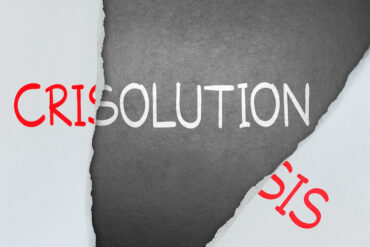The only thing I loathe is traffic. But recently, I’ve made amends with it by re-imagining traffic as my wormhole to discovery -for learning about things like . . . “generous orthodoxy.”
All of a sudden my commute wasn’t so bad.
Several weeks ago during my commute home, I tuned into Malcolm Gladwell’s podcast series, “Revisionist History”. One of our Booming team members tipped me off to the series. Needless to say, listening to one episode led on to the next. Revisionist History is a discussion about things that may have been misunderstood and overlooked in the past , things that deserve a second chance.
I couldn’t get over one episode in particular because it resonated so deeply with how I approach my personal mission and work as a Collective entrepreneur.
Generous Orthodoxy
In Gladwell’s episode, “Generous Orthodoxy” he tells the story of a former Mennonite pastor who was asked to step down from his pastoral position because his son was gay. In the mennonite community, there was no such thing as being open to homosexuality. Further, being asked to leave the church is considered one of the most grievous things . . . ever!
In Chester Wenger’s, story, we see the beauty in this term. He held steadfast to his faith, but more importantly, demonstrated an open approach by loving, prioritizing, and supporting his precious son. -After all, isn’t that what Christ would do?
Generous Orthodoxy is a concept that originated from Hans Frei, one of the most influential theologians of the 1900s. His body of work took an interdisciplinary approach to Christianity which held Christianity as an overarching narrative that is “historically and socially mediated.” By this view, we are able to maintain our system of faith while upholding our individualisms.
Malcolm Gladwell helps break down the terms. “Orthodox” means committed to tradition, and “generous” means being open to the world for change. To Frei, “orthodoxy without generosity leads to blindness, and generosity without orthodoxy is shallow and empty.” Gladwell summarizes Hans Frei’s stark conviction that the best way to live, is “to live in the middle ground.”
Attaining Balance in Our Business
I borrow this term, because it represents the issue and difficulty of finding that balance. And as Gladwell asserts, “not just for those pursuing a life of faith, but [for] everyone looking to make their life better.” In our world as entrepreneurs, we are constantly figuring out that lifestyle balance.
One of the overarching pain points we help our entrepreneurs tackle, deals with the seeming contradiction between making profit and making a positive difference in the world. How do we approach the conundrum of developing a business without diluting our purpose or core values?
As business owners, we deal with the orthodoxy that business is the pursuit of money and seek that element of generosity: being open to what business could be and how we can use it to express our values. “How can we stick to our financial commitments, goals, and targets through our unique business idea?” We face these gleaming questions head-to-head everyday, and our model stretches and uplifts us to the outer edges of generosity.
Business in One
At the end of Gladwell’s podcast episode, we experience the beauty in Frei’s term “generous orthodoxy”. Even though the term may seem common sense when we consider the compromises we make to execute our business ideas, we far too often miss the beautiful fulfillment that comes out of being open to seeing things, yet holding true to our life commitments. Somewhere in there magic happens.
In a previously written article by Katherine Silveira, she talks about the oneness in business. Her article challenges us to open up to the overlooked and misunderstood idea of business, and it is worth revisiting now.
This podcast also prompted me to reflect on our orthodox idea of business and the relationship we have with it. Currently we view business as something external of ourselves, something that we do, rather than seeing it as an exchange or creation of our own value. Business is something that you are.
You are the business.
Regardless if we are an employee, or own a business, it is our value that we exchange. Katherine’s article challenges us to be generous, to break open our idea from the orthodoxy in business. It is in this vein that we are able to dictate the fulfillment we achieve.
When we identify ourselves as the creator, seeing all aspects of our lives as integrated, we are able make choices from a place of wholeness, of oneness. Then, truly, nothing can stop us from creating exactly what we want in this world.
-Katherine Silveira
When we think of how we develop our business, we must always remember the beauty in generous orthodoxy. There is a middle ground that achieves this beautiful balance in what is business.
Would you like to learn more? We’re always discovering ways to circumvent and re-invent systems. Connect with us when you’re there and ready.





